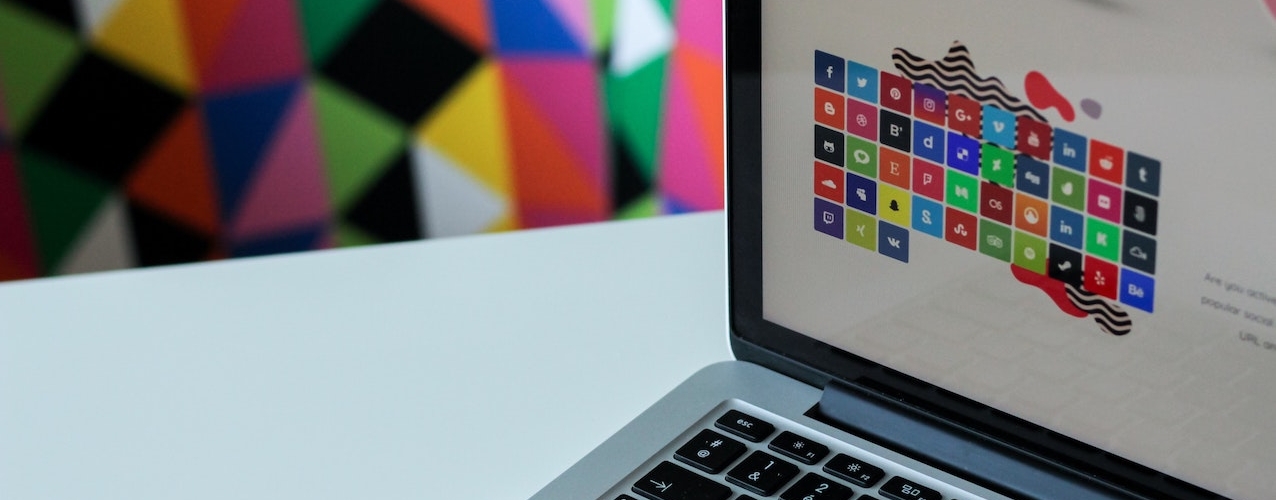Top 10 graphic design tips
- Know your design’s objective
- Try to use your brand colors
- Be consistent with your fonts
- Use white space to your advantage
- Take inspiration from successful companies
- Use icons to support your content
- Be aware of the latest design trends
- Keep it simple
- Use tools to make it happen
- Be creative
“There are three responses to a piece of design — yes, no, and WOW! Wow is the one to aim for.” —Milton Glaser
We live in a world dominated by images and visual platforms. Design is more important than ever, especially for small businesses trying hard to compete with bigger brands that have bigger budgets. Today, good design isn’t optional. It’s essential to survive in a competitive world.
One of the biggest challenges small businesses face is a lack of funds. Many of these businesses won’t spend money for good graphic design.
When you can’t afford to hire a professional graphic designer, try to design on your own. As an entrepreneur, you’re undoubtedly busy with other important tasks. But following these tips will help you in the long run. None are difficult, and none of them require any advanced expertise. But they can all have a huge impact on the designs you create.
Are you ready to learn? Let’s get started!
Know your design’s objective
Try to use your brand colors
- 92.6% of individuals considered colors as a chief reason to make a purchase decision.
- 90% of individuals make sub-conscious judgments based on the colors of products.
Be consistent with your fonts
Use white space to your advantage
Take inspiration from successful companies
Use icons to support your content
- Understand the set of icons you need to create.
- Think of the best metaphors and brainstorm about possible symbols.
- Someone may have already used a better version of the icons you need for your theme. Do some research and collect necessary references.
- Choose the style of your icons.
- Test your icons.
Be aware of the latest design trends
Keep it simple
Use tools to make it happen
Be creative
Every design project starts with an objective. Objectives offer a way to structure a project and validate its success. Before you start, be clear about why you’re creating a particular design. What objective do you want to achieve with that particular design? Do you want to increase sales or raise brand awareness?
Every objective has a different design. If you’re clear about this at an early stage, you’ll be able to come up with the best and most appropriate design.
In design, colors play a crucial role. They have the power to set a mood, make or break a design, and even influence the emotions and perceptions of the audience. Research has shown that
If you have brand colors, use them in your designs. United Colors of Benetton (UCB) is a brand that uses their brand color (green) in all their designs. If you don’t have any brand colors, don’t worry! You can use any color that matches or communicates your brand message. And for that, you need to understand the meaning behind every color. For example, green represents health, new beginnings, growth, nature, and wealth.
Just like colors, fonts play an important role in design. No matter how great a design is, if the font you use in that particular design isn’t good, it can turn off potential clients. Before finalizing a design, make sure the fonts are easy to read and reflect your brand personality.
Once you finalize a design, try to use the same font in all your graphic designs. Consistency will help your target audience recognize you. Unlike colors, although there is no hard and fast rule about the number of fonts you should use in a design, it’s best to stick to a maximum of two fonts.
In graphic design, white space (also known as negative space) refers to the area between the content and the image. Many people think of white space as an empty space. That’s not true! It can be any color, pattern, texture, or even a background image.
Generally, white space falls into two categories: active white space and passive white space. Active white space is intentional; it helps the viewer focus on the content area and provides a better layout and structure to the design. On the other hand, passive white space is the default space in between letters and lines of text or borders that make it readable.
FedEx uses negative space in its logo design. If you look closely at the logo, you’ll find a hidden arrow between the letters E and X.
Think about companies like Nike, Apple, and Starbucks. They’re successful for a reason. Apart from their products and services, these companies invest in great design.
Take a look at their logos. They are all iconic. The designs, colors, fonts, just about everything conveys the company’s history, values, and products/services. These companies understand that design is everybody’s language.
Steve Jobs once said, “Most people make the mistake of thinking design is what it looks like. People think it’s this veneer — that the designers are handed this box and told, ‘Make it look good!’ That’s not what we think design is. It’s not just what it looks like and feels like. Design is how it works.”
Before creating a design for your business, take some inspiration from the most successful companies, and find out how you can create meaningful design. But while taking inspiration from others, make sure you don’t copy their designs.
We all see icons in our everyday life. We find them on road signs, interfaces, and more.
Icons help us better understand and interpret information. When someone scrolls down your social media page, website, or any other page where ads are displayed, they may not pay attention to the text unless something interesting catches their eye. Using icons in your designs will not only grab their attention but also help them understand your page, post, or offer.
Here are a few tips on creating icons for your design:
Design trends come and go. A professional graphic designer must know which trends are emerging and which are on the way out. As an entrepreneur, you may not be able to predict these things.
But if you’re planning to design graphics for your business on your own, it’s imperative to be aware of the latest design trends. If you search the internet, you’ll get a lot of articles on design trends. Designhill has an in-depth blog filled with the latest design trends, ideas, and tips for both artists and entrepreneurs.
In the world of design, the term “simple” has been misinterpreted for many years. People think that simple design means plain. That’s not true.
In design, simplicity means creating something without depending on superfluous elements. For instance, think of big brands like Microsoft, Apple, Nike, and IBM. What do these brands have in common? Simple, clean, and meaningful logos.
Big companies know that simple design brings the best results. For decades, Apple has practiced simplicity in their communications. Their design helps the audience understand their message, and it sticks with people for longer.
If you want to make a long-lasting impression on your target audience, keep your designs simple.
The modern world is ruled by technology. From self-driving cars and intelligent robots to 3D printing and gene editing, remarkable technological changes are happening at the speed of light.
One of the major evolutions in technology for the design industry is AI-powered design tools like logo maker tools, email signature tools, and custom t-shirt design tools. These easy-to-use online tools are designed for both artists and non-artists. With them, you can create professional graphic designs for your business in minutes. So, go ahead, create impressive graphic design, and take your business to the next level!
Last, but not least, be creative. A lot of people think that creativity is a gift. The fact is, everyone is creative. The only difference lies in the implementation.
Creative design can emphasize and promote the brand personality you want to show off to your target audience. By following the above tips, you can create unique graphic design for your business.
Conclusion
Entrepreneurs may find design confusing and time-consuming. But investing the time to create impressive design will show your audience that you care about your branding. In the end, it’s your brand. No one else knows more about your business goals, objectives, and the message you want to convey to your audience better than you.
Don’t hesitate to experiment with your design skills to come up with innovative ideas. After all, graphic design is all about experimentation and exploration.














Send Comment:
5 Comments:
More than a year ago
Impressive blog thanks for sharing informative tips if you are looking for graphic design services do visit my profile ideahits
More than a year ago
Thank You for sharing such an amazing information. You really did a great job. We also provide "Graphic Design & Business Development Services in Bozeman Montana",You have query you can visit "Eli Kisko Design"
More than a year ago
Hey Guider Personas! well, Deigning is a part of life, like Something is new or something is light or something is a dark side. Designing is a magical skill you just imagine what you do and just perform it. Our Nursing Assignment Writing Service aims to help you understand what makes a great assignment, and offers a guide for the structure, language, style .
More than a year ago
Graphic design is always interesting like its blog. Also, attain help fro us for academics.
Do my assignment UK
More than a year ago
Great points and investing in a proper tools will boost your overall work time and possibilities are endless with sophisticated tools/equipment.